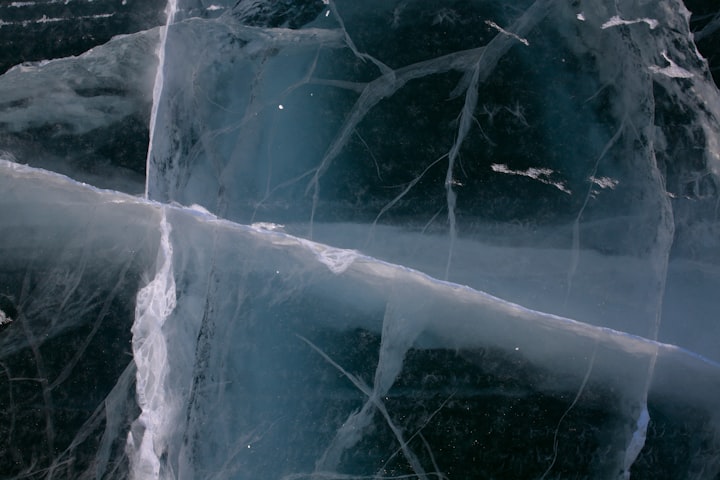
I arrived in Guatemala in the summer of 1953, too old to be innocent, but too young to know exactly what I was doing.
At least, that's how I reconfigure it all now.
X was the principle agent in that country, tasked with the noble and formidable task of strangling the infant communist threat in its craddle before it had a chance to grow into the menace it was. And I was meant to work alongside him, tucked away in a dilapidated safehouse near Headquarters.
The house was an old, spanish style estate, with thick terracotta walls and intricate iron grills caressing the broken windows. It might have been beautiful, if if were not full of so many ghosts.
And to be fair, it was a bit different from what I was used to, growing up along the seaside in Maine, or where I spent my more recent years, on the concrete of Quantico. So be it. I was, at that time, naive and adapatable, or so I imagined.
On my first day in the jungle, X explained the nature of what we would be doing in ruthless, casual terms. I batted away mosquitos as he spoke.
It was a refreshing break from the secrecy and half-truths of my previous briefs.
"The name of the game," he lectured, eyes dull from having given the same speech a hundred times to different recruits, "Is psychological warfare. It's the 50's, son, and we work for the United States of America-- we're all perfectly civilized and modern here. No one has to die for no reason any more."
I nodded earnestly, taken in by the idea that wars could be fought and won without casualties.
That is the arrogance of the present: standing on the precipice between past and future, we imagine that no one has ever been quite so advanced as we are now.
"Our job is simple: In order to make sure that RUFUS faces as few difficulties as possible when push comes to shove, we prepare and dissemble the propoganda necessary to make all of Central and Latin America despise the current regime."
RUFUS was the code name, in those days, given to Carlos Castillo Armas. He was little better than a military strong man, I knew. Armed with a little under 500 men, Armas would have had a great deal of difficulty overthrowing a mere community meeting, to say nothing of the entire Guatemalan government, but that was where the CIA came in.
As far as the United States government was concerned, the current leader of Guatemala, the democratically elected Jacobo Arbenz, had a little communist devil on his shoulder. The penalty for that was relatively straight-forward. He would have to be deposed. After all, if Arbenz was so ready to allow universal male suffrage, or open to increasing the minimum wage, what else might he be capable of?
"And it's not even gonna cost us anything crazy," X continued, as though not realizing he did not need to continue to sell me on this scheme, "No exorbitant funds, no body count. This is the future, baby."
That night, as I lay in my bunk, shrouded in thin cotton blankets, my head full of figures and ideas, a sound wrenched me from the threshold of sleep.
A sort of long, drawn out call. Not human, but not quite animal either. Something hybrid.
I slipped out of bed, my bare feet kissing the floor, and moved silently to the window.
It was a bird. In the moonlight, its multi-colored feathers flashed in different shades of darkness, and for a moment I was transfixed by the flutter of its wings.
"Scarlet macaw. Linnaeus wrote about them in the 1700s. Pretty devils, aren't they?" X asked gruffly in my ear, and I jumped.
He chuckled at my sudden reaction, and I blushed, embarassed.
"This bugger has been hanging around since we set up here. Won't leave us alone. It can talk, too. Repeats certain things it hears which is no good for anyone. Almost had to shoot it because it wouldn't stop saying-- well, confidential information. But one of the new guys had the bright idea to teach it 'REDACTED' instead. Isn't that funny?"
I nodded, my heart still hammering from his unexpected interruption.
X sauntered off in the direction of his bed, but I continued watching the bird for a while, entranced.
***
The days passed with agonizing slowness in the jungle. Intelligence rumor nets were now established tentatively, from El Salvador to Honduras.
I fiddled with the pencils on my desk, sweating away the hours in the safe house. On X's desk, documents labeled PBSUCCESS took up any and all spare room.
"Where are we with the local church officials?" X was inquiring, a brutal smile on his face.
"Contact has been established," one of the younger boys explained, readjusting his glasses upon his nose nervously, "They are not unwilling to hear what we have to say. I'm confident that a number of priests throughout the countryside will end up preaching what we need them to preach in regard to Arbenz the communist threat."
X nodded slowly, a toothpick balanced between his chapped lips.
"Good work. Continue with your outreach. Our success depends upon it. Be compelling," he intoned, turning his back on the lot of us and once again pouring over the documents that lined his desk.
There was that word again, success. I wonder what X imagined it meant.
Outside the open window, the scarlet macaw from the day before was grooming itself, the delicate vermillion feathers along its back, erect and resolute.
***
At some point, one of the younger recruits started asking about communism. The usual, silly, stupid questions that get one nowhere.
"But why doesn't it work?"
"Isn't capitalism just as broken? After all there's such a huge gap betwen the very wealthy and the very poor, isn't there?"
X always had an answer.
"Capitalism works exactly as it is designed to. There's nothing broken about it. It works to uplift a powerful few, and it is too those powerful few that you and I and Armas and the whole bloody Western World exist to serve."
"But isn't that problematic?"
"Not at all. Communists like to pretened they have the moral high ground, equality and all that. But really, it only benefits a selct few too. Look at Mao's experiment in China. Stalin in the USSR."
A few of us joked that once all of this was over, X might go get a job as the head spokesperson for The United Fruit Company, since he was so smooth. It was United Fruit, after all, that had laid all the groundwork lobying for a coup down South. Since Arbenz insisted on paying his people a living wage, that would put an end to their existing practices of careful exploitation. And so that was how it was that fair trade became necessarily Anti-American.
Someone had the bright idea to produce stickers for Armas, a design with something bright and flashy that would be enough to make even the most steadfast loyalist abandon their values.
The "God, Country, Liberty" slogan screamed across the glossy surfaces as we printed them long into the evening. The idea was to present Armas as a potential liberator, not a usurper.
The macaw watched from its spot in the trees, its head crooked to one side.
***
At nine pm that evening, Arbenz's resignation, which had been pre-taped, came over the radio.
Inside the safehouse, all was deathly quiet.
We would learn later that he had sought asylum in Mexico. That he had resigned in the hopes of preserving some of the democratic gains established in the previous decade. That he thought his stepping down might halt the invasion in its tracks.
Well, the words he used were, "pretext of an invasion".
***
That evening, I was awoke to the sound of the macaw. Dazed, I stumbled from my bed, and thrust open the window. The cool air hit me like a balm.
A voice came from behind me.
"That bird can live nearly as long as a man," X hummed, regarding it with misty, far-away eyes. It was the first time I had ever seen him look nostalgic, soft around the edges, "It's seen more than enough of our work here to judge us fully."
I swallowed hard, shutting my eyes against the vision of the macaw; hardening myself to the familiar flash of bright plummage, those knowing dark eyes.
But the cloudy iris, those luxurious feathers remained glued to the back of my eyelids. Watching, reminding.
"Redacted, Redacted, Redacted," the creature shrieked, and I forced myself to look at it again, shuddering.
"Do you regret it?" I asked over the cacophony, feeling nauseaus now.
X chuckled, rubbing the back of his neck with his hand.
"There's nothing to regret if nothing ever happened," he looked at me mockingly, with something like pity, "Even your bird friend knows that."
I swallowed the bile that rose in my throat and nodded. And in a sense, nothing had exactly transpired. There was no blood on my hands, that I could see. A bodyless coup. That was the wonder of psychological warfare. The costs were low.
Or perhaps there was just no way of knowing them yet.
***
Sometimes now that I'm back home in Maine, where the leaves change color in the fall and the birds that call out in the night are dressed in the usual, duller colors of the North, I think about the macaw. Only when I can't sleep, that is. Which admitedly is often.
I don't know what exactly keeps me up.
It might have something to do with what happened all those years ago. After I was exracted from Central America, I read about the happenings in Guatemala from the safety of newspapers.
I learned how Armas immediately, upon taking power, banned any and all opposing parties, and went on to murder and torture political opponents. I learned about a civil war that would drag on for four decades, ravaging the land and the people who lived upon it. I learned that my little stint in propoganda would have played a small part in the death of democracy as we knew it in Guatemala.
Later on, the CIA would release certain confidential documents. Assasination lists and manuals. Unsavory internal reviews and accounts. How silly, even then, to imagine that it could have been bloodless.
And sometimes I remember that night when Arbenz resigned, the last night I saw the macaw encsonsed among the trees.
"That bird can live nearly as long as a man," X had murmured softly, unaware he was immortalizing himself in my memory, "It's seen more than enough of our work here to judge us fully."
The macaw is endagered now. I read that somewhere. Habitat destruction and the parrot trade and humans messing up the earth, as they are accustomed to doing.
I wonder how I will remember to feel guilty, when that brightly adorned creature is gone, and the jungle has been shed of its greenery.
Perhaps guilt is the most useless thing of all.
About the Creator
Katie Alafdal
queer poet and visual artist. @leromanovs on insta






Comments
There are no comments for this story
Be the first to respond and start the conversation.